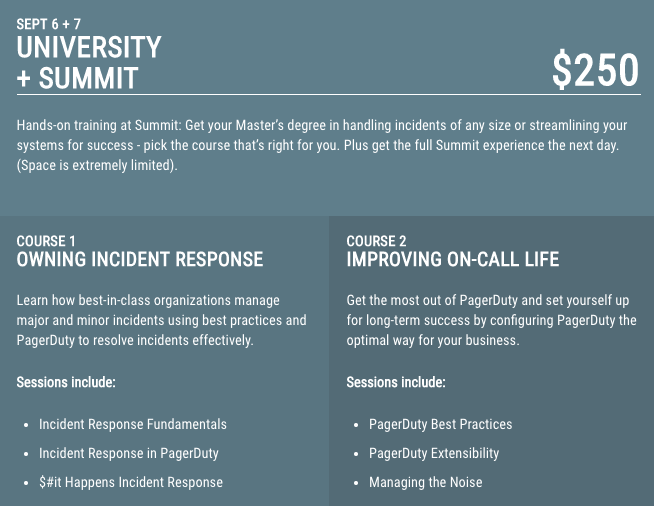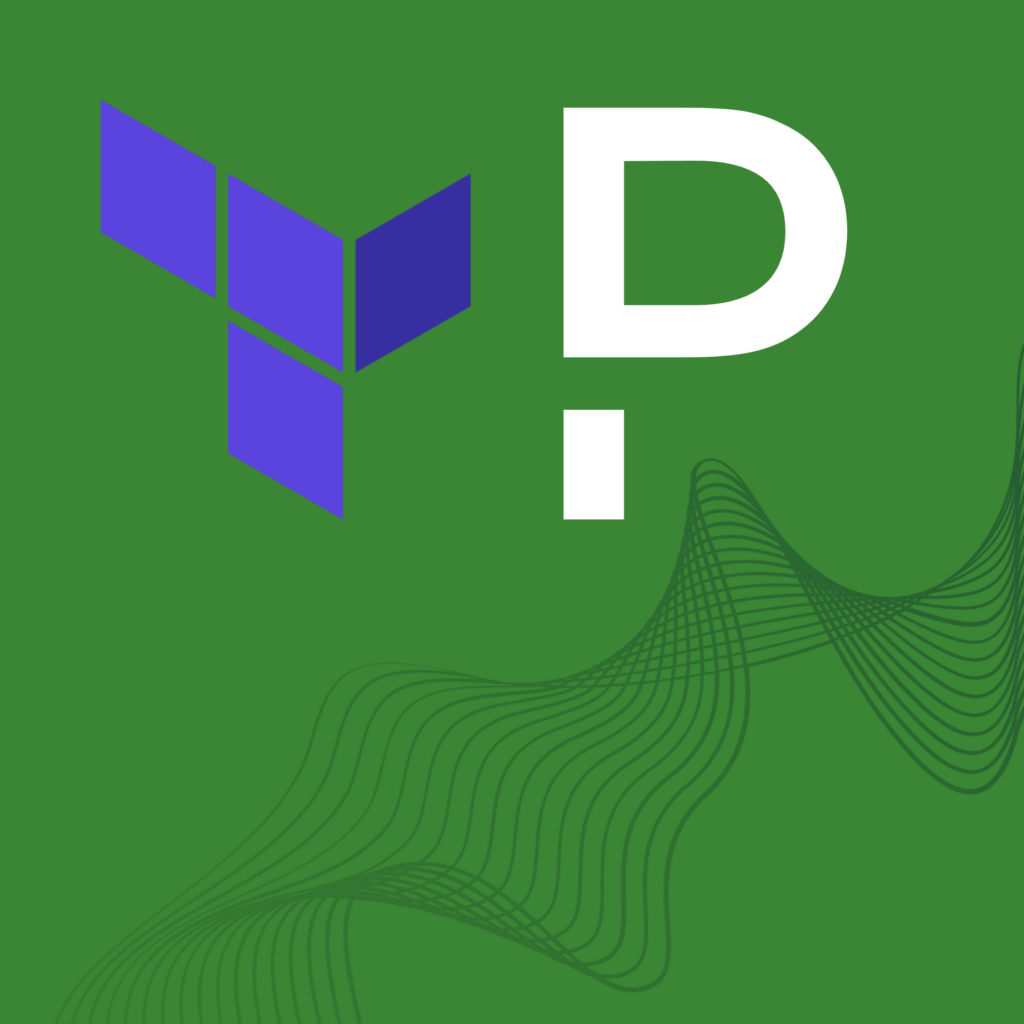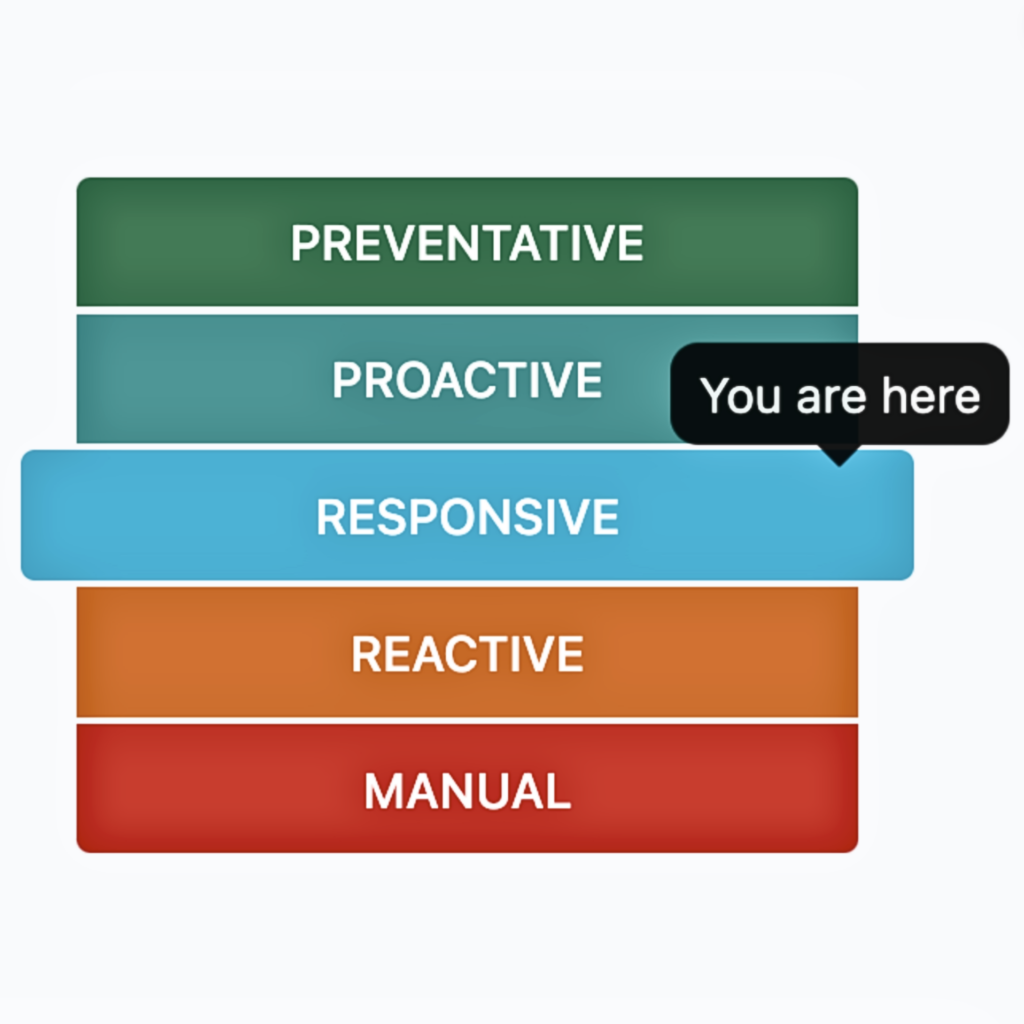- PagerDuty /
- Blog /
- Best Practices & Insights /
- Driving Customer Success: Introducing PagerDuty University
Blog
Driving Customer Success: Introducing PagerDuty University
Many of PagerDuty’s customers innovate at a rapid pace — they are rarely satisfied with the status quo. They want to keep improving the way they manage their digital operations across IT and the business and how they use PagerDuty to do it. We also found that some users weren’t familiar with some of our newer capabilities that would allow them to be more efficient in managing the noise, handling major incidents, and learning from them. Identifying new ways for customers to quickly gain value from PagerDuty is a top priority for us, and on September 6th, at PagerDuty Summit, we will be hosting our first PagerDuty University, a best in class training workshop designed for you.
PagerDuty’s own journey around incident management is the epitome of the on-call experience. It is what we’ve based our incident response best practices around — which has garnered extremely positive feedback. We have continually received interest from our community for a more structured training to help them get better at calmly and efficiently managing major incidents and learning from them.
At PagerDuty Summit 2017, we designed two tracks in PagerDuty University to address what we see as our biggest opportunity to impact our community’s ability to manage their digital operations: Owning Incident Response and Improving the On-Call Life. Here’s a breakdown of what you can expect:
Owning Incident Response
Whether you’re fighting a real fire or a virtual fire, incident response is a discipline that has been refined over the years to minimize risk and resolve a problem as quickly and as predictably as possible. When the house is on fire, the occupants may be panicking, but the fire crew is calm and collected. Why? Firemen practice these scenarios all the time and they’ve had years of experience running into burning buildings that help them safely manage the spread of the fire, and put them out as quickly as possible.
Calm and dispassionate actions in the face of catastrophe resolve crises more quickly and efficiently. So when the shopping cart service is running slow, or even goes down, no amount of panic or executive swoop is going to resolve the problem more quickly than a calm approach that follows best practices.
This track consists of 3 courses:
- Incident Response Fundamentals: This track starts with by building a solid foundation of incident response best practices that draw from FEMA’s National Incident Management System and adapts it for IT response.
- Incident Response in PagerDuty: After the fundamentals are established, we’ll walk through how to execute an effective incident response in PagerDuty.
- Major Incident Simulation: To make sure we can put things into practice, the whole class will go through a simulation of what to do when something major happens.
Improving the On-Call Life
PagerDuty was founded to improve the lives of responders everywhere and we’ve continued to invest in that mission. But as we’ve deployed to thousands of customers, we’ve found that the original PagerDuty set up may not be taking advantage of all the capabilities we’ve added in the past year or two. Some of the newest and most valuable capabilities include the ability to manage incidents instead of alerts, set filters to suppress noisy services, and integrating with more than 200 integrations and extensions — whether out of the box or through our API.
We also wanted to bring together professionals who are both new to PagerDuty or who have been using our platform for years to share their best practices and their frustrations. The PagerDuty community has thousands of examples of how companies are solving their Digital Operations challenges in a way that works for them.
This track consists of 3 courses:
- PagerDuty Best Practices: Learn how to configure and use the platform most effectively.
- PagerDuty Extensibility: We’ll then show you how to use built-in integrations and how to build your own using our extensive API.
- Managing the Noise: Show us your own environment and we’ll work with you to make sure responders are only notified when they need to be.
PagerDuty University
All of this inner dialog drove us to the conclusion that we needed to have more focus on training our community how to operate as effectively as possible and how to leverage PagerDuty most effectively for their use case. So we’re launching the PagerDuty University at PagerDuty Summit this year with a goal to share our experience and what our thousands of customers have taught us with the broader community.
We also welcome your feedback on what other tracks might be useful and what sort of delivery methods fit the lives our users, whether it’s instructor-led, virtual classroom or self-paced — we want to meet our community’s educational needs where they learn best.



